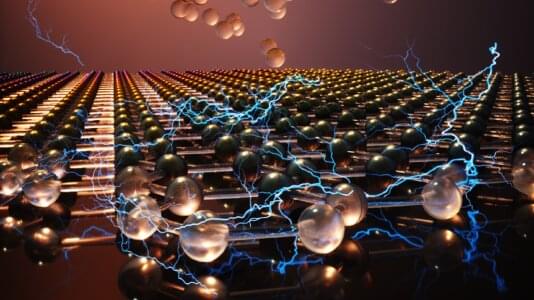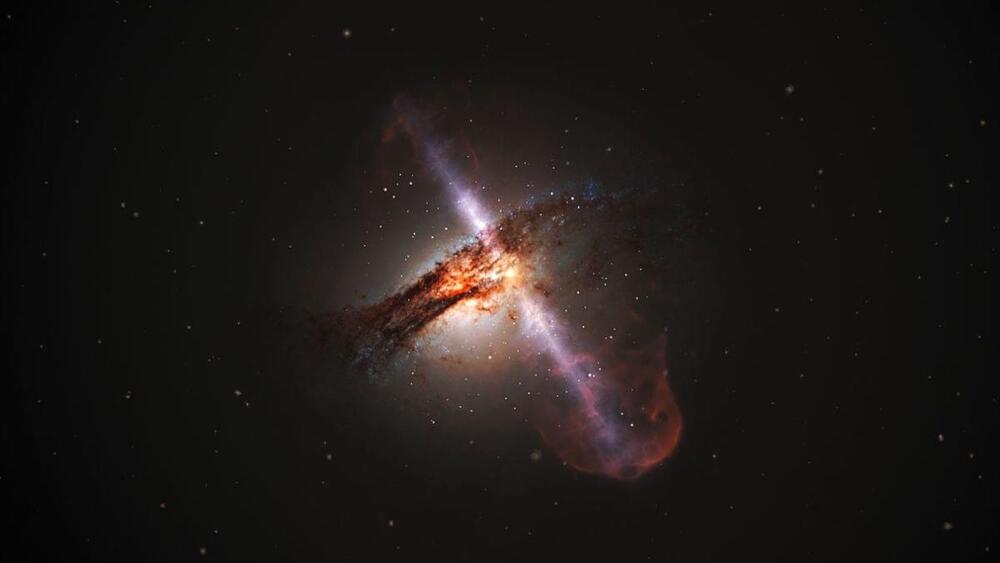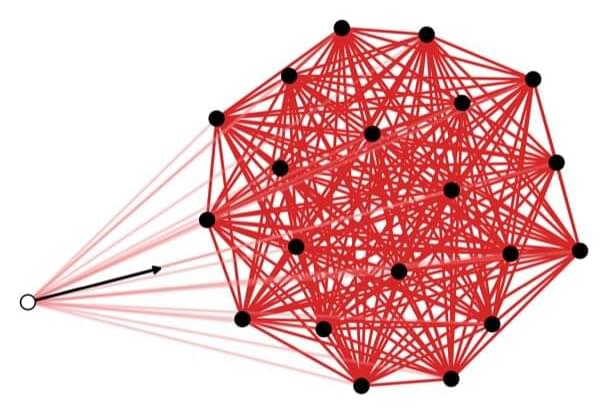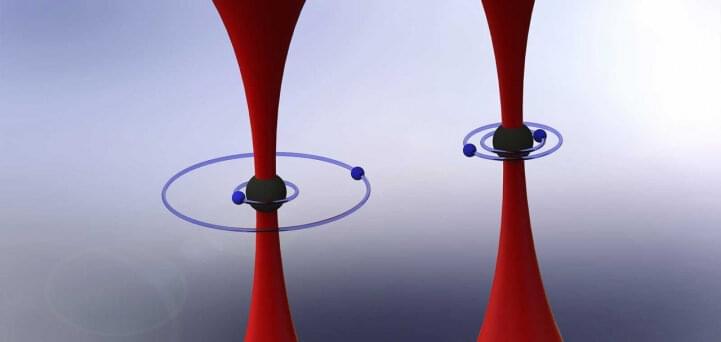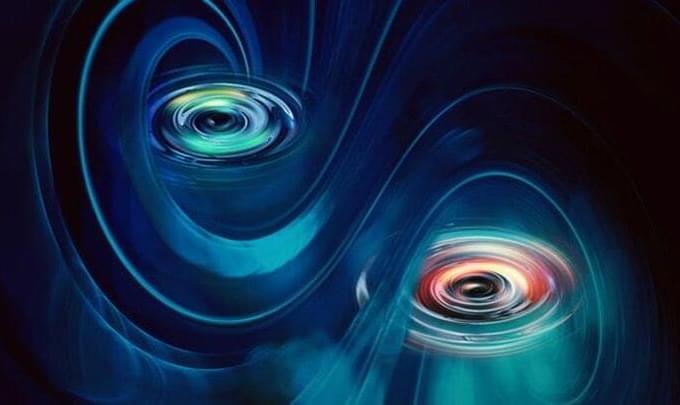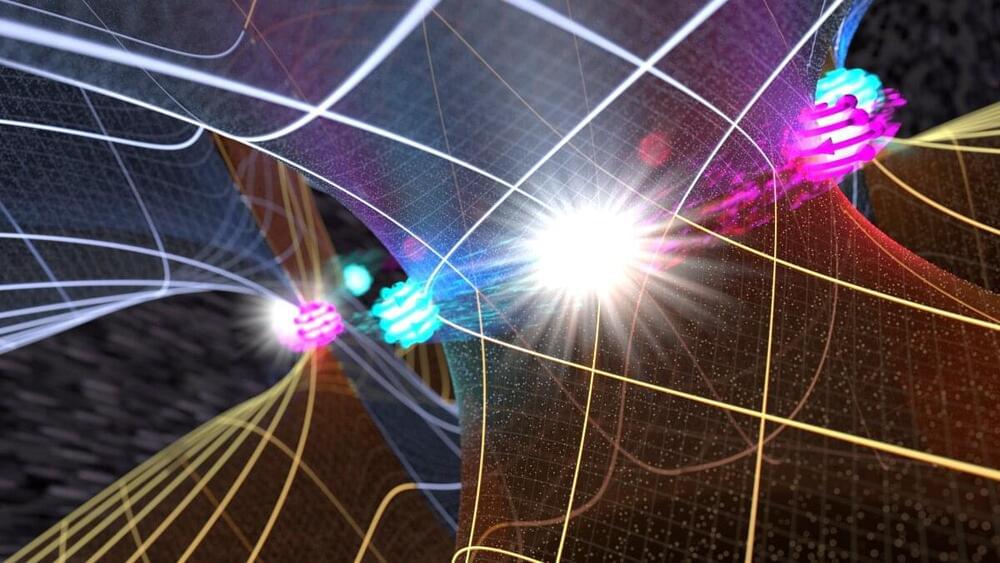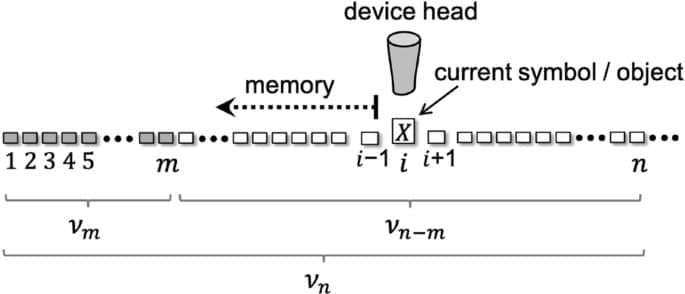Information variations in a chain-like system are associated to energy transactions with the environment, which can take place reversibly or irreversibly, with a lower theoretical energy limit22,23. Fluctuations as a consequence of pure computations are on the order of the thermal level (i.e., similar to kT, being k the Boltzmann constant and T the absolute temperature), according to Landauer’s principle. Such energies are negligible at routine human scales but become significant when the size of the system is nanoscopic or smaller, because the work and heat it generates also compare with the thermal level. Small systems are based on nanostructures, including individual molecules and arrangements of atoms, such as biological and quantum systems.
Fluctuation theorems have appeared in recent years explaining quantitatively energy imbalances between forward and reverse pathways or between equilibrium and non-equilibrium processes24,25. They have been tested experimentally26,27,28, mostly in biomolecular systems analyzed on a one-by-one basis29. Most of these theorems establish relations among thermodynamic potentials for general systems, often with no specific insight into information theory. This theory, in turn, deals with spatially-indexed, 1-dimensional arrangements of symbols, which may not be necessarily associated to a time order. Recent generalizations separate the role of information and feedback control30,31, but still the interpretation of non-Markovianity, irreversibility and reversibility in terms of purely informational operations such as reading, writing and error correction32,33 remains obscured.
Here, we analyze energy exchanges associated to the symbolic management of a sequence of characters, without reference to the physical construction of the chain. Just by considering reversibility at the single sequence level and conservation laws, we next present two pairs of fluctuations equalities in the creation of information sequences, which use depends on energy exchange constraints. Our analysis integrates key information concepts, namely, reading, writing, proof reading and editing in the thermodynamic description of a string of symbols with information.

